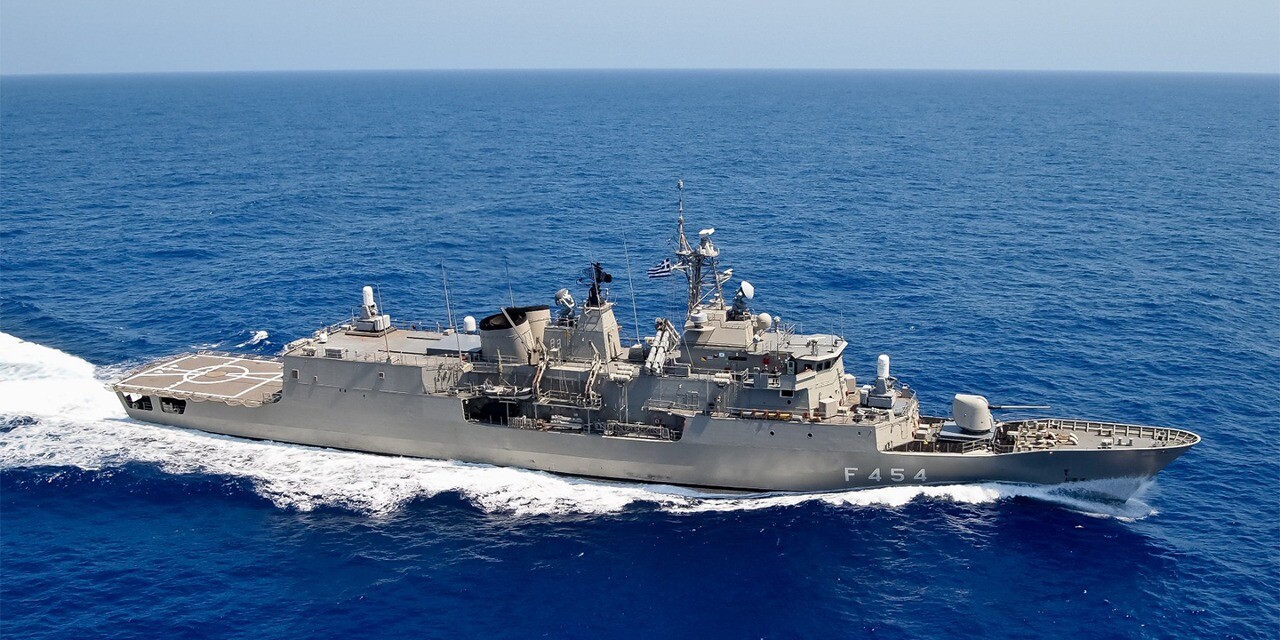Greek frigate in Red Sea withdraws due to technological shortcomings
 Greek Navy to switch frigates in Red Sea, Red Sea, June 3, 2024 (Reuters Photo)
Greek Navy to switch frigates in Red Sea, Red Sea, June 3, 2024 (Reuters Photo)
Exclusive by Yesim Erarslan — A Greek frigate deployed to the Red Sea as part of the EU’s ASPIDES (Maritime Protection Mission) operation has been withdrawn on an immediate basis, highlighting a crisis within the Greek Navy.
According to Greek media reports, the Greek frigate Hydra (F-452) was sent to the Red Sea to protect civilian vessels from Houthi attacks under the EU’s ASPIDES operation. While escorting a commercial ship, a Houthi missile exploded 150 meters from the Hydra. Following this incident, 10 crew members immediately requested to return home, leading to the ship’s early return in early June, a month ahead of schedule.
Among the issues reported by the crew was the frigate’s lack of modern anti-drone systems, with instances of stars being mistaken for drones.
Defense expert Turan Oguz criticized the state of the Greek Navy, describing it as “shameful.”
He pointed out that the frigate sent to the Red Sea was the most equipped in the Greek fleet. “Greek ships are old, poorly maintained, and lack adequate sensors and weapons, failing to perform even the simplest tasks. Greece is rapidly heading down the same path as Egypt, spending extra money on a mix of old and new weapons from various countries in hopes of protection. However, they lack the funds to maintain, modernize, or prepare these weapons for war. As a result, like Egypt, the weapons exist on paper but the readiness levels are lamentable,” Oguz said.
Recently, a Greek missile boat from the Kavaloudis class was reported to have a hull breach because of a lack of maintenance. Oguz criticized the lack of regular checks and maintenance for the 44-year-old vessel.
He emphasized the consistent issues faced by Greek warships (aged 40-50 years) because of inadequate maintenance and outdated sensors and weapon systems.
“Greece allocates the lowest percentage of its defense budget to operations, maintenance, repairs, and infrastructure among the 32 NATO countries, with just 8%. The next lowest, Albania, allocates nearly twice that amount. Without sufficient budget to properly implement necessary procedures, both the equipment and personnel fall short. If the 2024 budget allocations remain unchanged, the readiness levels will continue to decline rapidly,” Oguz added.
The early withdrawal of the Greek frigate Hydra from its mission in the Red Sea was attributed to technological inadequacies.
“Let’s not hide behind our fingers. Frigates like the Hydra and SPARA of the MEKO type are old and equipped with outdated technologies. While the region has next-generation floating units, these frigates have systems incapable of responding to modern threats,” the crew said.



